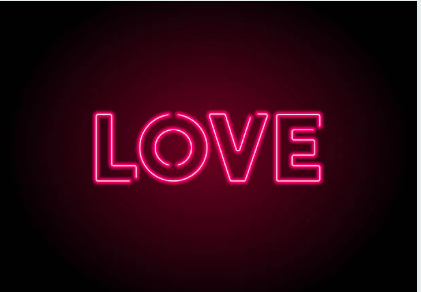Commonly, in relationships, people might change their entire life to satisfy the need of maintaining the relationship with their significant other. The desire of sex expression in a sense of making love, and the concept of love itself are the most cognitive stimulating experiences in a person’s life. A teacher of mine back in high school can stand as a solid example. Coming from a low income family household, growing into a personal low income household, he met a woman that changed his life. After a relationship that lasted for a couple years, he proposed. She was more than happy to marry him, however, she insisted on getting her father’s blessing. As sad as it was, her father asked, how can you take care of my daughter and potentially her child if you can barely take care of yourself? Today, he is a university professor, a high school teacher, and a lawyer that belongs to upper social classes in terms of household income. The reason behind his success was not a desire to acquire wealth, but a desire to acquire love, a desire to be with his potential significant other.
Nonetheless, as strong as love can be, a question arises. Can love turn into hate? Depending on how severe the emotional trauma is, love can indeed turn into hate. However love doesn’t disappear instantly, it gets suppressed behind our emotional behavioural system that once again wants to avoid pain and acquire pleasure.
In extreme, but often recurring experiences, emotionally charged breakups can lead to suicidal thoughts and acts. Reflecting on existentialism, finding no meaning, people might likewise engage in suicidal acts or thoughts. A denouement direct correlation is obvious. Emotional analogous trauma leading a person to lose his significant other is the equivalent of a person not finding a meaning in life, even further inexorable, as the meaning that once filled the void of existentialism is non existent anymore. A significant other, reciprocally guided by the stimulation of love, can spawn a meaning to exist.
A paramount principle also arises when it comes to the meaning of life and our existence, do we, as human beings, possess the freedom we deserve? During the Age of Enlightenment, Jean-Jacques Rousseau developed the pre-existent Theory of the Social Contract. The theory can be traced back to Socrates, and many other thinkers such as Hobbes and Locke. From a freedom standpoint, the Social Contract Theory predicates implicitly, human beings giving away part of their freedom, to belong to a broader society. But why give up our freedom for society? We as human beings are social animals, we are, by instinct driven towards society. Whether a person is extroverted or introverted, society is one piece of the puzzle that makes a person’s life complete. However, can society limit or impose a meaning to our existence? And if it wasn’t for society, would we even think about the meaning of our existence? Would it matter?
When a person is looking for his why, he s trying to identify himself as a unique individual serving a purpose in life beyond the personal scope. If society disappears, by default, you become unique. Nonetheless, even without society, a person will at one point think about why he exists, and where he came from, and where he’s going.
When people think about how the universe was made, from an atheist standpoint, even though science came a long way, there are still some loopholes from which surfaces question marks. These questions are still to be answered, and the askers don’t dwell on the absence of clear answers, as they belong to a society that shares the same problem. It is a question that nobody has the answer to.
On the other side, on a lower scale example, when a person starts developing feelings towards another person, there is always the dilemma of sharing those feelings. The challenge rests within accepting rejection. We do not want to share our feelings concerned by the probability of the other person rejecting us, and thus breaking the hope we had to share intimate feelings with a potential significant other. When we are in the state of not knowing whether the other person feels the same way or not, adding the fact that we can not ask them directly because of instinctive and self protective mechanisms, we start sinking in feelings of helplessness and hopelessness. The reason why we dwell on this question way more than the previous universe related question, keeping in mind that the latter is in principle much more important, is because it is a personal question that we do not share with society as a whole. It is a personal and intimate problem that only we can solve.
Dwelling on the meaning of life can be reflected on from a social influential stance. The meaning of life is unique for each and every person, it is not a broad question that society as a whole share, it is not a question to which there is only one right answer. If society disappears, so does the meaning to exist. If life does not exist, and the only form of life remaining in this universe rests in you, then meaningful turns into meaningless.

